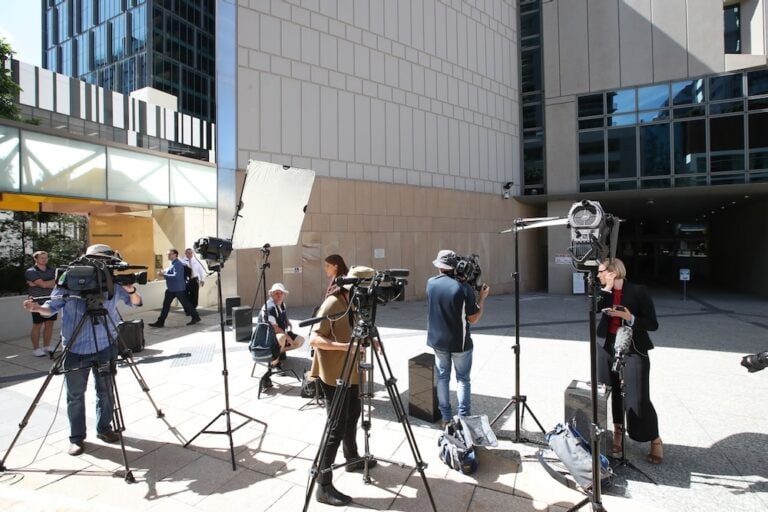(MEAA/IFEX) – The following is a MEAA media release: Phone tap laws threaten press freedom New laws, passed by the Senate yesterday, give law enforcement agencies power to intercept phone calls, emails and text messages of innocent people. This extreme surveillance law poses a severe threat to press freedom – journalists can assume their conversations […]
(MEAA/IFEX) – The following is a MEAA media release:
Phone tap laws threaten press freedom
New laws, passed by the Senate yesterday, give law enforcement agencies power to intercept phone calls, emails and text messages of innocent people. This extreme surveillance law poses a severe threat to press freedom – journalists can assume their conversations with sources will be intercepted at any time, says Australia’s media union.
Spies, police and other security agencies will be able to use B-party warrants to tap phones belonging to a suspect’s family, friends, colleagues and lawyer. Other agencies, such as the Australian Tax Office, Customs, and the Australian Securities and Investment Commission (ASIC), will have the power to access stored communications such as email and SMS.
“This new law targets anyone who interacts with suspects of serious crime, though they are not themselves suspected of anything. The rights of innocent third parties are jeopardised by this excessive and invasive law,” said Media, Entertainment & Arts Alliance federal secretary Christopher Warren.
“From today, every Australian is a potential target. Despite government assurances to the contrary, there is a real concern that these laws could be used arbitrarily by the authorities” he said.
For journalists this law poses a particular threat to their work. Those journalists who do contact terror suspects for a story may have their phones tapped, giving authorities access not only to conversations with the suspect but also those of other, innocent sources. At any time police could be listening, obliterating any professional right the journalist has to protect the confidentiality of his or her source.
“Without public faith in the journalists’ promise to protect sources, much crucial information in the public interest would not come to light,” said Warren.
“The government’s attempt to destroy this trust will result in fewer people speaking out and a public left with nothing but government spin and other media stunts.”
According to figures released by the New South Wales Council for Civil Liberties early this year, Australia issues 75 percent more telecommunications interception warrants than the US. Per capita, this translates to 26 times more warrants than the US. In Australia non-judges issue 76 percent of all warrants, whereas in the US only judges can issue warrants.
“This new law, like the recently enacted anti-terror laws, is unnecessary given the legislation already in place to gather evidence in relation to crime suspects. There is no reason to take that a step further and inhibit civil rights and press freedom,” said Warren.
The Media Alliance represents more than 10,000 journalists across Australia.


